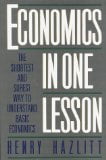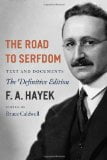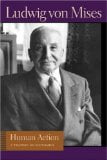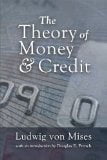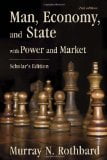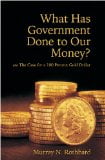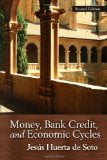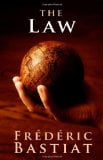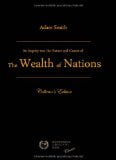Build your own library of books on free market principles, limited government, and individual liberty. Here are 10 enduring and essential works to start with…
Economics in One Lesson: The Shortest and Surest Way to Understand Basic Economics
Henry Hazlitt’s timeless and instructive “one lesson” drives a stake through the heart of the economic fallacies perennially proposed by government policy makers. Tariffs, rent controls, minimum wage, unions, taxes, wages, unemployment, and many more. Through stories and examples Hazlitt takes difficult economic concepts and presents their basic truths for the layman to understand.
The Road to Serfdom: Text and Documents–The Definitive Edition
F.A. Hayek’s irreproachable work in political philosophy, intellectual and cultural history, and economics, offers a passionate warning against the dangers of state control over the means of production. First published in 1944, The Road to Serfdom is even more important in today’s era of big government collectivism and economic control. Moreover, it lays out the incompatibility of democracy and comprehensive central planning and the choice between socialist ideals and preservation of individual liberty.
Human Action: A Treatise on Economics
Ludwig von Mises’ magnum opus, Human Action, is one of the most insightful books on economics ever written. It is also one of – if not – the most important defenses of laissez faire capitalism ever written. Economic calculation is common to all people, explains Mises, and Human Action is an application of Human Reason to determine the best means of satisfying ends. Human Action is essential reading for any supporter of free market economics.
The Theory of Money and Credit
Ludwig von Mises’ definitive book on the foundations of monetary theory shows how money had its origin in the market, and how its value is based on its usefulness as a commodity in exchange. Mises presents the case for sound money with no inflation, and presents the beginnings of a full-scale business cycle theory. Additionally, Mises provides an outline for a return to a fully backed gold standard and competitive banking. This work is one for the ages.
Man, Economy, and State with Power and Market – Scholars Edition
Murray N. Rothbard’s sweeping presentation of Austrian economic theory, including a reconstruction of many aspects of that theory, a rigorous criticism of alternative schools, and an inspiring look at a science of liberty that concerns nearly everything and should concern everyone. Rothbard teaches that economics is the science that deals with the rise and fall of civilizations, the advancement and retrenchment of human development, the feeding and healing of the multitudes, and the question of whether human affairs are dominated by cooperation or violence.
What Has Government Done to Our Money? Case for the 100 Percent Gold Dollar (LvMI)
Murray N. Rothbard’s excellent work on the complex system of money, banking, and government money. Following a review of the basics of money and banking theory, Rothbard traces the decline of the dollar from the 18th century to the present and provides lucid critiques of central banking, New Deal monetary policy, Nixonian fiat money, and fixed exchange rates. As well, Rothbard proves that the government, and only the government, can destroy money on a mass scale, and he showed exactly how they go about this dirty deed.
Money, Bank Credit, and Economic Cycles
Jesus Huerta de Soto’s comprehensive treatise on economic theory, including the Austrian business cycle theory, provides a decisive vindication of the Misesian-Rothbardian perspective on money, banking, and the law. This book presents, with great clarity, exactly what is wrong with fractional-reserve banking. The language is vibrant and the explanations thorough; a great read that will give you a very deep understanding of our economy.
Frederic Bastiat’s hard look at the failure of Big Government, the limitations of their powers, and the distortions of the law as witnessed during the French Revolution of 1848. This enduring work demonstrates a thorough and flawless understanding of both the bright and dark sides of human nature, of the essential role each has played in the growth, and divergence of collectivist ideologies and the tendency for government to grow and for liberty to wane.
Leviathan (Oxford World’s Classics)
Thomas Hobbes’ lasting great work of political philosophy. This tome provided the fundamentals of classic liberal thought including: the right of the individual, the natural equality of all men, the artificial character of the political order, the view that all legitimate political power must be representative and based on the consent of the people, and a liberal interpretation of law which leaves people free to do whatever the law does not explicitly forbid.
An Inquiry into the Nature and Causes of the Wealth of Nations: Premium Edition
Adam Smith’s groundbreaking work on political economy and moral philosophy. Written at the beginning of the Industrial Revolution, Smith argues that free market economies are more productive and beneficial to their societies. Here Smith provides the foundation of resource-allocation theory; that under competition, owners of resources will use them most profitably, resulting in an equal rate of return in equilibrium for all uses.

